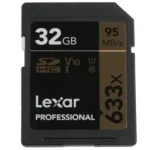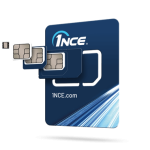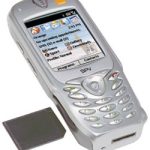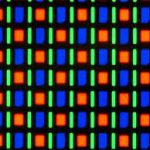What is an SD Card?
 No matter what type of device you use, there are different storage options to choose from. For smaller devices, things like digital cameras or smartphones, the most reliable form of storage is a memory card.
No matter what type of device you use, there are different storage options to choose from. For smaller devices, things like digital cameras or smartphones, the most reliable form of storage is a memory card.
One of the most common types of memory cards is known as an SD card. There is more to know about this type of storage than you may realize. Check out the guide below to learn all you could need to know about SD cards.
What is an SD Card?
SD cards are great for storage. Look at just about any piece of technology and storage is a must. Most devices have built-in storage, but there are external storage devices like an SD card that makes it possible to access files between devices.
Short for “Secure Digital,” this memory card was originally created by the SD Association. There are three tiers to be aware of: Standard SD, SDC (high capacity), and SDXC (extended capacity). Storage sizes can run from 2GB (SD) all the way up to 1TB (SDXC). With that kind of storage power, you can transfer nearly unlimited files from device to device with the greatest of ease.
Recommended Media
With so many options out there among SD cards, it can feel confusing knowing which one to choose. Major names like SanDisk, Lexar, and Sony are the most common. Specifications can be a qualifying factor when choosing the right SD card, but you generally can’t go wrong with one of those devices.
Speed is a critical factor when choosing the right SD card as well. The higher the transfer speed, the better the card is at moving files. Higher speeds are also great for larger file types, things like videos or applications. For general use, the Standard SD is probably fine to use.
Labelling and Specifications
The cool thing about SD cards is that you can glean a lot of information about them by just reading the front of the card. You will know whether it is SD, SDHC, or SDXC, as well as the storage capacity. You might also see other numbers and even letters on the front of the memory card.
The numbers indicate write speed. If you see 4, 6, or 10, it means that they are able to write at those speeds at the very least. If you see a U, it indicates the speed class rating. They are in increments of 10MB/s, so U3 won’t go any slower than 30MB/s. Non-UHS SD cards are going to max out at 25 MB/s, so be aware before buying.
Choosing the Right Card
At the end of the day, you don’t even need to necessarily choose the “best” SD card on the market. You are looking for the one that is the best for your needs. Unless you’re buying with long-term thinking in mind, you should be able to get away with a Standard SD that writes at least 10MB/s. If you want to go for Full HD video, then Class 10 and U1 cards are the best bet.
The key to finding the right card is to break down what your needs are. It also helps to know what devices you are going to be using. Also, make sure that you have a memory card reader because it will be far simpler to transfer between devices (and some laptops/computers don’t even come with an SD reader port). When all is said and done, you will be able to look at data storage with a greater appreciation for the ease and convenience that SD cards bring to the table.








Connect
Connect with us on the following social media platforms.